Module 1 Handbook
| Site: | CABI Academy |
| Course: | Data Sharing Toolkit Learning Materials |
| Book: | Module 1 Handbook |
| Printed by: | Guest user |
| Date: | Friday, 26 April 2024, 6:15 AM |
Introduction
This handbook is designed to help you answer the Module 1 activity questions.
The Bill and Melinda Gates Foundation is committed to information sharing and transparency.
You must ensure data and information collected, accessed, used or shared within investments is FAIR and safeguarded.
This module will enable you to:
- identify activities that are likely to generate and use data
- understand requirements for integrating FAIR and safeguarded data within an investment
- overcome challenges to delivering FAIR and safeguarded data within investments
This will make the grant process smoother and results more impactful for both Program Officers (POs) and grantees.
FAIR and safeguarded data
Data can be:
- observations
- samples
- numbers
- images
- other resources
Value can be created and maximised from data when it is collected, accessed, used and shared.
If you do not share your data the cycle is broken, as the same data cannot be collected and re-used by others.
FAIR data is:
Findable
Accessible
Interoperable
Reusable
Safeguarded data is:
- managed and governed equitably and ethically
- as open as possible while reducing harmful impacts
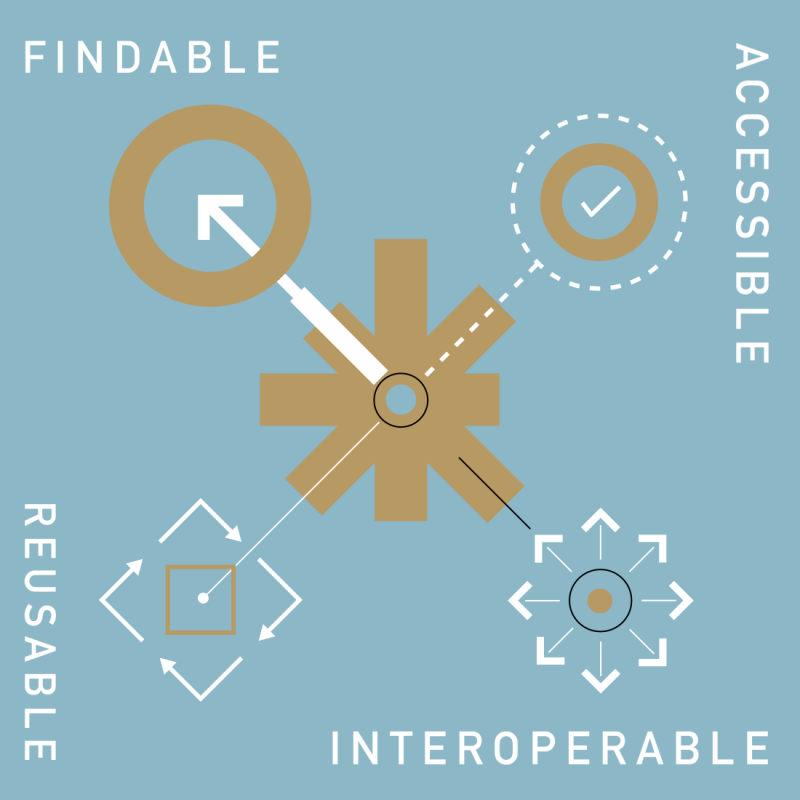
Why is it critical to BMGF aims?
Digitally-enabled services rely on sustainable access to relevant data. You must provide data in a way that allows it to be:
- integrated
- analysed
- used
What if you do not share or manage data well?
The BMGF will not receive the highest possible return from investments. You will not realise the value that could have been created from your data.

People, process and technology
To ensure data is FAIR and safeguarded, you will need people, policies and processes that support the use of technology. You must focus equally on all aspects to maximise the utility of data.
You need to lead, support and advocate for FAIR data.
This will help meet the needs of communities represented, or impacted, by the data and prevent the risk of harm.
What happens without these policies and processes?
The data is unlikely to be accessible in the long term.
You must support polices and processes with technologies and standards to curate and provide access to data.
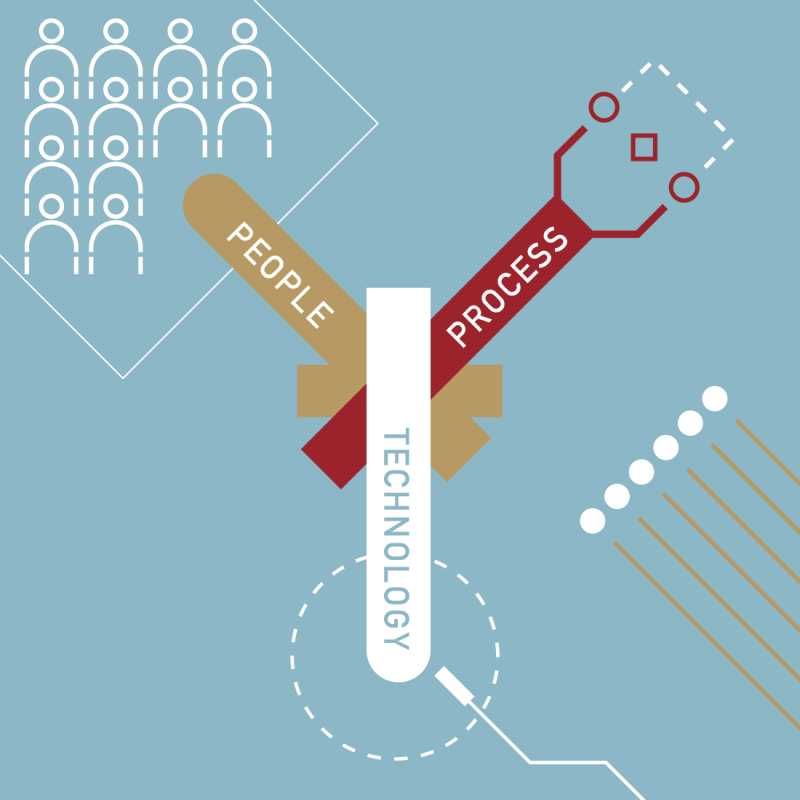
Overcoming constraints
In your role as an advocate for FAIR and safeguarded data you will meet a number of constraints.
Typically, these are in the areas of:
- Sharing and access
- Security and privacy
- Trust and benefits
The following pages give you some ideas to help counter these constraints.
Sharing and access
You may come across people who are unwilling to share data. It will be one of your biggest challenges, and is common when there is a lack of clear policy and process for data sharing and access.
Data sharing and access processes help people to feel comfortable accessing, using and sharing data.
Symptoms
Within a grant project or programme, you may come across one or more of these symptoms:
- no data sharing mechanisms or a lack of confidence in them
- silos within organisations or governments meaning processes and approaches differ
- changes in leadership impacting investment in sharing
In these cases, policies and processes are restrictive and do not support the sharing and reuse of data. This results in a closed (or walled garden) environment. This reduces innovation capabilities and prevents data reaching those who can benefit from fair and equitable access.
Solutions
You must develop, enforce and adhere to policies and processes that support data sharing and access.
You can explore more about how to support data sharing and access though the related modules:
- Maximising reuse of data through licensing and sharing (Module 5 Handbook)
- Assessing the enabling environment in-country to support data sharing (Module 2 Handbook)
Security and privacy
You may come across people who do not trust others to use their data well. This is common where people have unaddressed fears arising from legitimate concerns, such as:
- data security
- privacy
- trust over who has access to data and how it might be used
Symptoms
Within grants you could recognise this by:
- lack of trust and understanding among stakeholders
- limited understanding of key data concepts
- lack of understanding of national, regional or international data policies or legislation
Solutions
You can:
- encourage people with key data literacy skills to help others overcome their fears
- show people how data protection regulations, data security and licensing support the wider sharing of data
You can explore more about how to support data sharing and access though the related modules:
- Protecting the rights of individuals while maximising the utility of data (Module 4 Handbook)
- Minimising harmful impacts from data (Module 6 Handbook)
Trust and benefits
You may come across people who are resistant to sharing due to lack of trust or not seeing the benefits
Symptoms
Within grants you could recognise this by:
- lack of trust in the data produced
- lack of incentives to collect quality data
- data being used as a ‘bargaining chip’
- benefits of sharing not well understood
- concerns others will unfairly benefit from data collected and shared
Solutions
You can provide examples of where FAIR and safeguarded data has delivered benefits to all involved.
You can review case studies showcasing the benefits of delivering FAIR and safeguarded data and how challenges have been overcome in the toolbox.
You will find three summarised examples in the next section.
Examples of FAIR and safeguarded data
The following are a selection of projects implementing or moving towards implementation of FAIR and safeguarded data in the agricultural sector.
You can now read and review examples from:
- Data sharing in India
- The BonaRes Repository
- iSDAsoil
Data sharing in India
What were the challenges?
Cereal Systems Initiative for South Asia (CSISA) aimed to embed FAIR data in activities.
They found challenges in:
- putting in place the right data sharing agreements
- getting support from those who had fears of data security, privacy and trust
How did they overcome the challenges?
CABI and ODI supported CSISA and its community using:
- a series of training courses
- accompanying policy advice
This helped CSISA and its community overcome fears, realise benefits and put in place new data sharing agreements.

The BonaRes Repository
What were the challenges?
BonaRes brings together experts in soil from over 50 institutions. They research ways to balance efficient use of soils with protecting the environment. Their end goal is to support farmers to improve decision making.
How did they overcome the challenges?
To ensure data is findable the team published an open inventory of data they hold using a consistent vocabulary.
They tag all datasets with a licence that clearly outlines reuse rights.
Challenges are still being faced regarding:
- a lack of trust in others' use of data
- benefits of permitting commercial reuse of the data
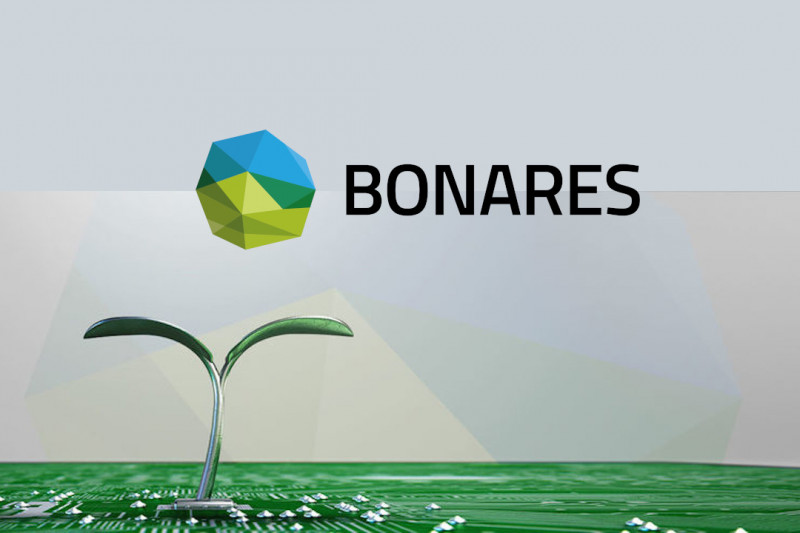
iSDAsoil
The Innovative Solutions for Decision Agriculture Soil (iSDAsoil) platform provide soil information maps at a resolution of 30 meters, encompassing 24 billion unique locations across Africa.
All data is easily accessible through an easy to use and well documented API.
All data is available under a license that allows anyone to freely reuse it.
Explore the iSDAsoil platform for yourself
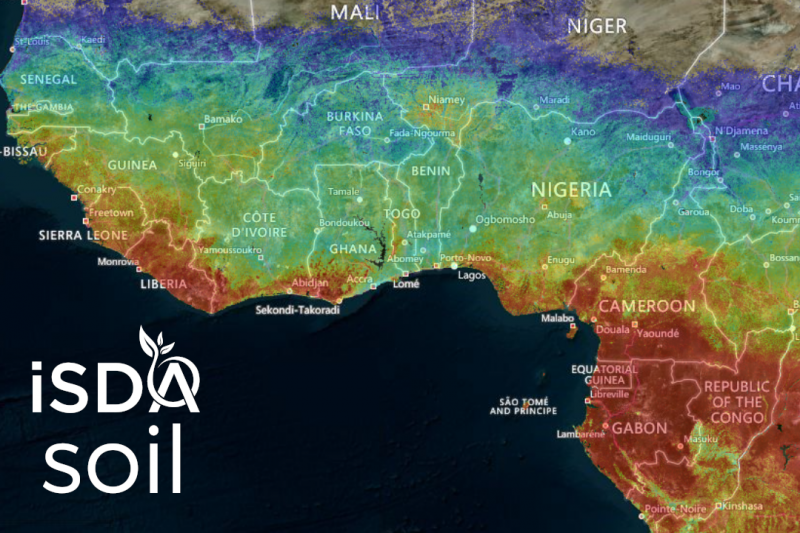
Identifying investments requiring FAIR and safeguarded data
You can identify investments that will require FAIR and safeguarded data as they feature the following activities.
- Collecting new data or information
For example, for analysis - Stakeholder collaboration
Collaboration between actors often relies on the ability to share data and information between them - Developing digital services
Creating services or applications from data derived from third party sources and transformed in some way to generate insights - Providing tailored services or insights
Tailoring services are likely to include personal or sensitive information. They will depend on high quality data and evidence and to be able to trust and reuse that data. - Sharing or publishing data
An investment may be focussed entirely on improving sharing of data, for example via Soil Information Systems.
Toolbox checklist
You can find a checklist in the toolbox to identify which investments will require FAIR and safeguarded data within them. The checklist builds on the 5 points above, providing examples of activities within each theme.Roles and responsibilities
Program Officers
As a Program Officer you will identify actions and provide support to ensure data is FAIR and safeguarded within investments.
Whether designing an intervention, technology, product or research study, integrating FAIR and safeguarded data can greatly contribute to the success and impact of an investment.
Grantees
As a Grantee you need to take a key role in delivering FAIR and safeguarded data within investments.
Primarily this involves:
- addressing core constraints
- considering and planning for data access, use and sharing from the outset
- educating yourself and others to overcome fears
- putting in place the policies and processes that will support your grant and increase data utility and return of value from the data
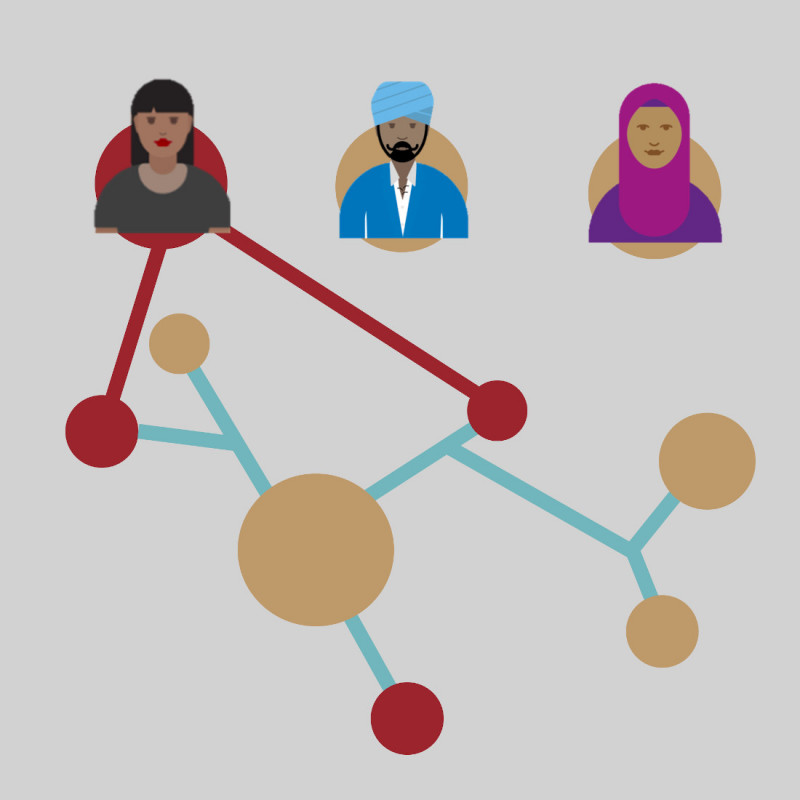
Tools and support
You can use the following tools and resources to support delivering FAIR and safeguarded data.
Learning resources
Reviewing the module handbooks and complete the activity questions for each of the following:
Module 1 Delivering FAIR and safeguarded data within investments (this module)
Module 2 Assessing the enabling environment in-country to support data sharing
Module 3 Working with data form third part sources
Module 4 Protecting the rights of individuals while maximising the utility of data
Module 5 Maximising reuse of data through licensing and sharing
Module 6 Minimising harmful impacts from data
Module 7 Ensuring sustainable access to data
Tools and checklists to support investments
Specialist support
While the FAIR data toolbox is self-serve, you can find a set of external support organisations and individuals that can help you with all aspects of delivering FAIR and safeguarded data within investments.
Summary
You can find all the key points from this Module in the Cheat Sheet: Considering data in investments
Don't forget to complete Module 1 activity questions to review your knowledge of this topic.